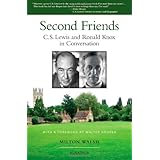Night Office - Monastic Lectionary of the Divine Office,
NINETEENTH WEEK IN ORDINARY TIME
SUNDAY
First Reading
2 Kings 4:38-44; 6:1-7
Responsorq Sir 48:12-14
Throughout his life no
ruler could make Elisha tremble, no one could lord it over him. t No task was
too hard for him, and even in death his body prophesied.
V. In life he worked
miracles; in death his deeds were marvelous. t No task ...
Second
Reading
From A Retreat for Priests by Ronald Knox
Elisha asks for, and eventually obtains,
a double portion of his master's spirit. It is in the power of that spirit that
he returns to the sons of the prophets, clad with the mantle of Elijah, and is
at once accepted by them as the successor of their master and his. Now, what
made him ask for this double portion, for a higher measure of spiritual
privileges than even Elijah himself had enjoyed? Surely because, in some way,
he saw in front of him still more difficult work, a work which would need a
higher degree of divine assistance if it was to be carried through
successfully.
I think the difference you notice
immediately between Elijah and Elisha, as you read their biographies one after
the other in the books of Kings, is that Elijah is a free lance, a wandering
prophet, appearing at one moment and disappearing the next, making his
influence felt by sudden violent demonstrations; whereas Elisha lives a settled
life, always at the disposal of anybody who wants to consult him, the habitual
counselor of kings. In Elisha's time, the position of prophet seems to have
become a fixed thing, an institution, a recognized feature of the national
life. Elijah, when he is not being fed by ravens in the desert, is lodging with
a poor widow at Sarepta, whereas Elisha lives in his own house, and sends his
servant down to interview visitors at the door, instead of dealing with them
himself. And when he goes on his travels, to Shunem, he is entertained by
"a great woman" there, who persuades her husband to keep a guest room
permanently at the prophet's disposal.
And, above all, these sons of the
prophets whom we have already mentioned are continually recurring in Elisha's
biography. Their houses, for they lived in community, seem to have been
centers or seminaries of prophetic inspiration scattered up and down the
country; and although they existed before his time, it is clear that Elisha was
constantly in touch with them, a sort of Father Provincial whom they must
forever be consulting. At one place they want to extend their premises; they
ask Elisha about it; one of them drops an axe into the water - ask Elisha;
there is net enough food to go round - ask Elisha; or if the food is suspected
of being poisoned - ask Elisha. And I believe it is generally thought by
scholars that we owe to these prophetic schools the transmission, in great
part, of the sacred records which have come down to us. Prophecy, instead of
being an occasional phenomenon of the desert, has become the occupation of a
caste and the center of a kind of community life; in a word, the thing has
become an institution.
And I sometimes wonder whether Elisha
did not ask for a double portion of the grace which had rested upon Elijah precisely
for that reason; precisely because he saw that it is a harder work, really,
keeping an institution alive once it is founded, than providing the inspiration
which originates it. The founders of the great religious orders have been, in
the main, people who kept things going by the inspiration of a personal
influence during their lifetime, and left to somebody else, when they were
gone, the difficult task of preserving their tradition and organizing the
institution to which they had given birth. And even where the great founders
have been great legislators as well, it is inevitable that fresh situations
should arise, that the tradition should need to be interpreted afresh, the rule
accommodated to contemporary needs. Something of its rugged simplicity will
disappear in the process. And it is then that every institute must pray for a
double portion of its founder's spirit.
Responsory 2
Kgs 2:15; Eph 2:20
The sons of the prophets who were at Jericho
said: The spirit of Elijah has come to rest on Elisha. t And they came to meet
him, and bowed to the ground before him.


No comments:
Post a Comment